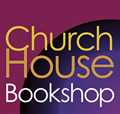Method in Theology
Sorry, this item is out of print.
Paperback
£28.99
Publisher: University of Toronto Press
ISBN: 9780802068095
Published: 06/01/1990
Method in Theology stands, with Insight, as Bernard Lonergan's most important work. It is Lonergan's answer to those who would argue that in this time of cultural change and dissolution the believer is afloat on a sea of multiplying theologies, without rudder or compass. Lonergan was resolute in his refusal to be defeatist on this point. While agreeing that theology must continually change to mediate between religion and culture, he worked out an integral method to guide and control this ongoing process. This is a reprint of the 1973 edition. A new annotated edition of Method in Theology will be published eventually as a part of the Collected Works of Bernard Lonergan. Bernard Lonergan (1904-1984), a professor of theology, taught at Regis College, Harvard University, and Boston College. An established author known for his Insight and Method in Theology, Lonergan received numerous honorary doctorates, was a Companion of the Order of Canada in 1971 and was named as an original members of the International Theological Commission by Pope Paul VI.
'Surpasses expectations ... A reflection on the operations theologians perform as they do theology ... A pathbreaker in an area which will prove more and more crucial as theology advances ... will have to receive the most serious critical attention of anyone who in the future wishes to come to grips in a serious fashion with the problem of method in theology.' 'An excellent introduction to Lonergan's own thought and a masterful plea for and proposed model of systematic collaboration in theology and religious studies ... Method in Theology is one of the most substantive proposals for theology and religious studies in the last ten years.' 'A book that is having vast influence ... The implications ... are quite sweeping and radical.' 'Outstanding ... it presents an original and internally consistent theory, systematically constructed according to a fully articulated philosophy of human knowing.'






